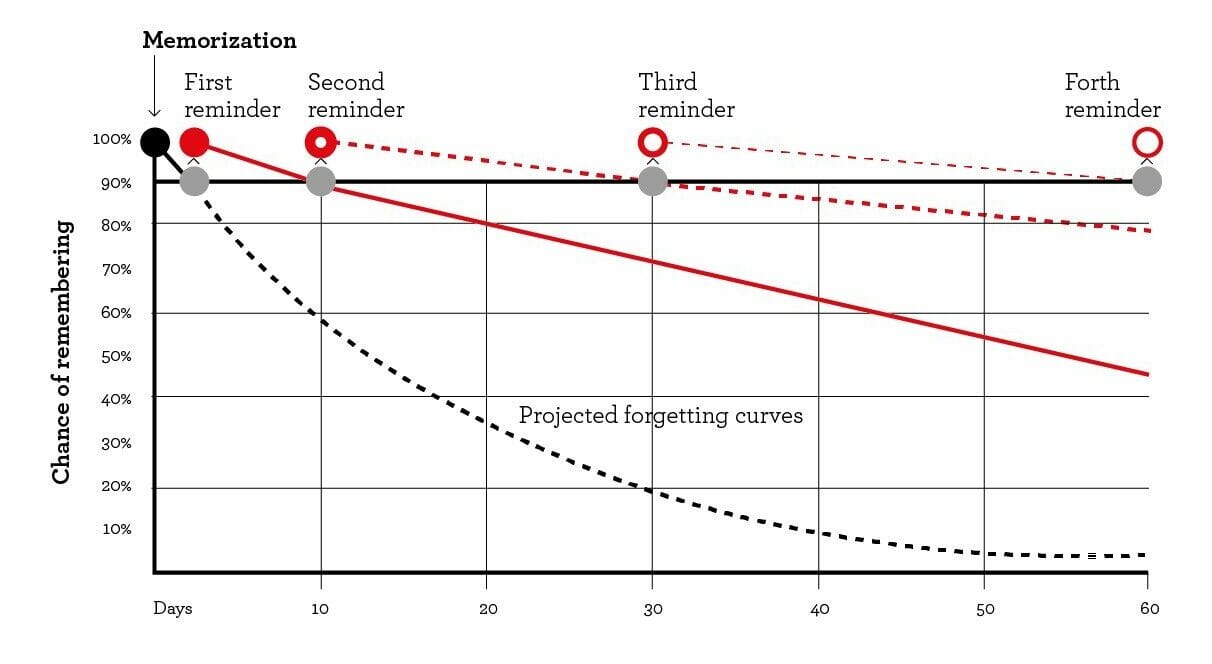The Six Week Study Skills Course
The transition to A Level study can be a daunting one for many students and our Sixth Form study skills course promotes a range of techniques that are instrumental in developing students’ academic and independent learning skills. This bespoke course guides students to use their time productively and to set up effective academic behaviours and habits. We focus mainly on ‘efficient effort’, i.e. tasks which maximise the returns on the time students invest, thereby engendering confidence and self-sufficiency. By learning to interpret critical feedback as a way of improving, students are encouraged to develop academic buoyancy with a strong belief that they can succeed, meet their goals, and take control of their future.
Key areas covered by the course would typically include:
- Goal setting
- Resource organisation
- Effective note making
- Revision techniques
- Exam preparation
- Utilising feedback
Study Tips
Spaced Learning And Active Recall
When trying to remember information for an ‘end of topic’ test or exam, there are many strategies which can really help to make information ‘stick’ more successfully in your long-term memory.
Tip 1: Avoid Cramming at all Costs!
Just staring at or rereading information for several hours to try to remember it is ineffective and certainly does not result in the ability to recall and apply this information, when it comes to the test itself.
Why Doesn’t Cramming Work?
After several hours of looking at study material it is easy to think we have it committed to memory. Every page, every important fact, evokes a comforting feeling of familiarity, a glow that allows our brain to swiftly tag our study notes as “something that I’ve seen before”. But being able to recognise something isn’t the same as being able to recall. We often fall into the trap of information being familiar but not remembered.
TIP 2: Use Spaced Learning
‘Repeated exposure to information in specifically timed intervals provides the most powerful way to fix memory into the brain’.
It is hard to discuss the benefits of spaced learning without mentioning the Forgetting Curve.
How To Create A Spaced Revision Timetable
In essence, the idea behind spaced repetition is that you allow your brain to forget some of the information to ensure that the active recall process is mentally demanding. The harder that your brain has to work to retrieve information, the more likely that that information will be saved to long term memory.
By spacing our repetition by a day, 3 days, then a week, we allow ourselves to forget some of the information so that when we revise the topic – through active recall – it takes active brain power. Rereading, on the other hand, has low value because it is a passive exercise – just testing yourself once has been shown to be more effective than re-reading the same passage four times. This active recall-spaced repetition combination can easily be adapted into our studies.
Tip 3: Use Active Recall
We often think that learning is a process whereby you test yourself after having learnt all the information. In fact, this can’t be further from the truth! Active recall involves retrieving information from memory through, essentially, testing yourself at every stage of the revision process. The very act of retrieving information and data from our brains not only strengthens our ability to retain information but also improves connections in our brains between different concepts. More information can be found in the Study Tips Sway.
Summary: Spaced Learning and Active Recall provide a brilliant blend that can improve the efficiency and efficacy of your studies.

